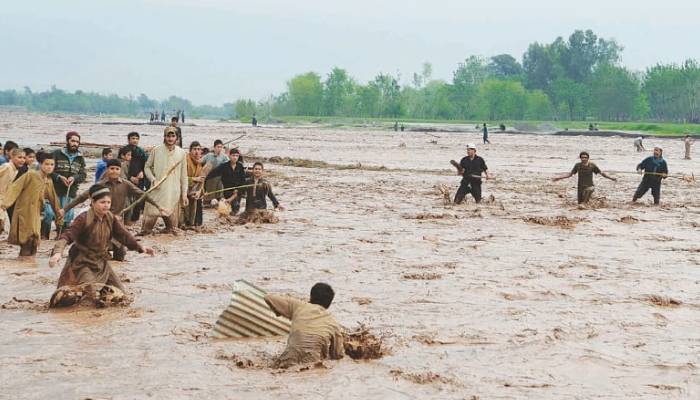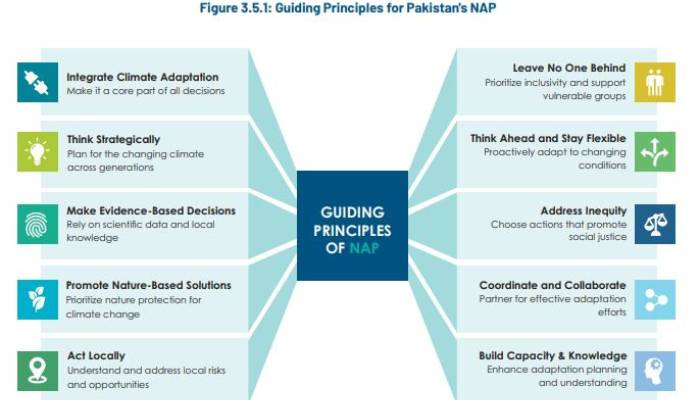
Pakistan’s struggle with the climate change crisis is an ongoing battle that needs immediate attention from concerned authorities in a bid to save d the country from succumbing to catastrophic floods with shifting weather.
Ambassador Faisal Niaz Tirmizi, Pakistan’s Envoy to the United Arab Emirates (UAE), stated that Pakistan ranked as the 5th most vulnerable country to climate change during the 14th Session of the IRENA Assembly.
Unfortunately, the country will continue to struggle with environmental degradation and air pollution unless practical changes have been made in policy.
Due to climate-related hazards, Pakistan's GDP might shrink by 18-20% by 2050 as reported by World Bank.
Pakistan’s Environmental Challenges:
Pakistan has become highly vulnerable to climate change despite its 0.9 percent contribution to the global greenhouse gas (GHG) emissions.
The government of Pakistan has taken some steps to address the current climate problems with the help of climate change policy but there are still core areas that need undivided attention and evaluation.
The major challenges mainly include coal-based power generation, rapid urbanization and significant agricultural burning.
To reduce the environmental degradation in our progressing country, a comprehensive policy reorientation at the national level is required.
Pakistan's National Climate Change Policy objectives:

The National Climate Change Policy of Pakistan suggests a practical framework to tackle any issues related to environmental problems.
Mr. Salman Faruqui, the then Deputy Chairman, and Planning Commission came up with a Task Force under the chairmanship of Dr. Ishfaq Ahmad, Advisor Science and Technology, to address these issues.
Pakistan's National Climate Change Policy was formed keeping the report from that Task Force as a building block.
• To focus on pro-poor gender sensitive adaptation while also promoting mitigation to the extent possible in a cost-effective manner.
• Maintain the security of water, food and energy security of the country in times of challenges posed by climate change.
• Try to reduce the risks arising from the expected extreme weather events such as floods, droughts and tropical storms.
• To strengthen inter-ministerial decision making and coordination mechanisms on climate change.
• To facilitate effective use of the opportunities, particularly financial, available both nationally and internationally.
• To foster the development of appropriate economic incentives to encourage public and private sector investment in adaptation measures.
• To work on the awareness, skill and institutional capacity of relevant stakeholders.
• To foster and encourage conservation of natural resources and long term sustainability.
The main objective of the updated National Climate Change Policy- 2021’s is to direct Pakistan towards climate resilient and low carbon development.
The Ministry of Climate Change's programs:
Pakistan’s Ministry of Climate Change, which has an annual budget of approximately 802.69 million rupees, has initiated many programs to solve the environmental problems in the country.
The first one is Climate Resilient Urban Human Settlements Unit, which was launched in July 01, 2019 and ended on June 30, 2024.
Another major program that was launched by the ministry is Ten Billion Trees Tsunami Programme. The main goal of the initiative was to revive Forest and Wildlife resources in Pakistan.
Currently, the ongoing program that is expected to end in 2025 is called, Capacity Building on Water Quality Monitoring. The initiative aims to establish a national/ provincial drinking water quality management system.
Other major programs that were launched by the federal government and provincial departments include Clean Green Pakistan Index, Ecosystem Restoration, WASH, Climate resilient Urban Development and Green Building Code.
How Pakistanis are tackling climate change struggles:
A survey conducted by the World Bank blogs shows that people in Pakistan have adopted a money-saving initiative, that is turning off lights (76%) to combat climate change.
However, the same people have not shown the same energy on more practical solution like using public transport (36%).
Awareness campaigns to educated masses about the benefits of practical solutions for climate change is very crucial to see tangible results.















